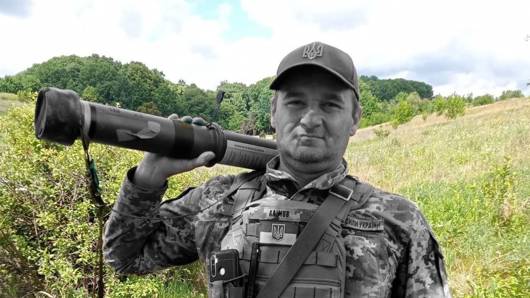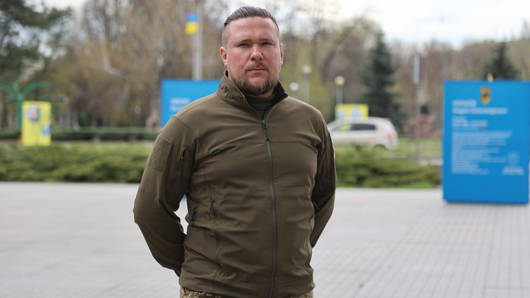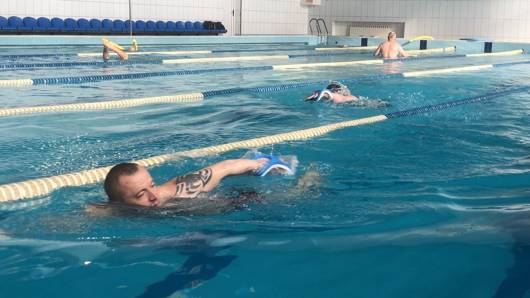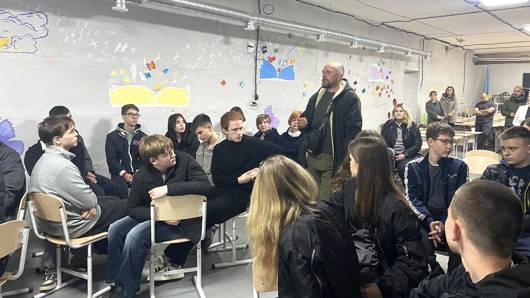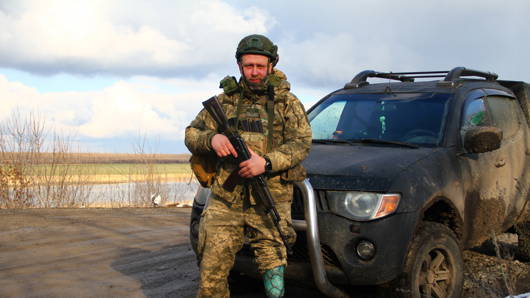After returning from the war, veteran Serhiy Martynenko works at the RTD of the Northern Iron Ore as an assistant traction unit driver. At the same time, he is studying to be a traction unit driver, trying himself in engineering management positions, and also receiving higher education online at Metinvest Polytechnic.
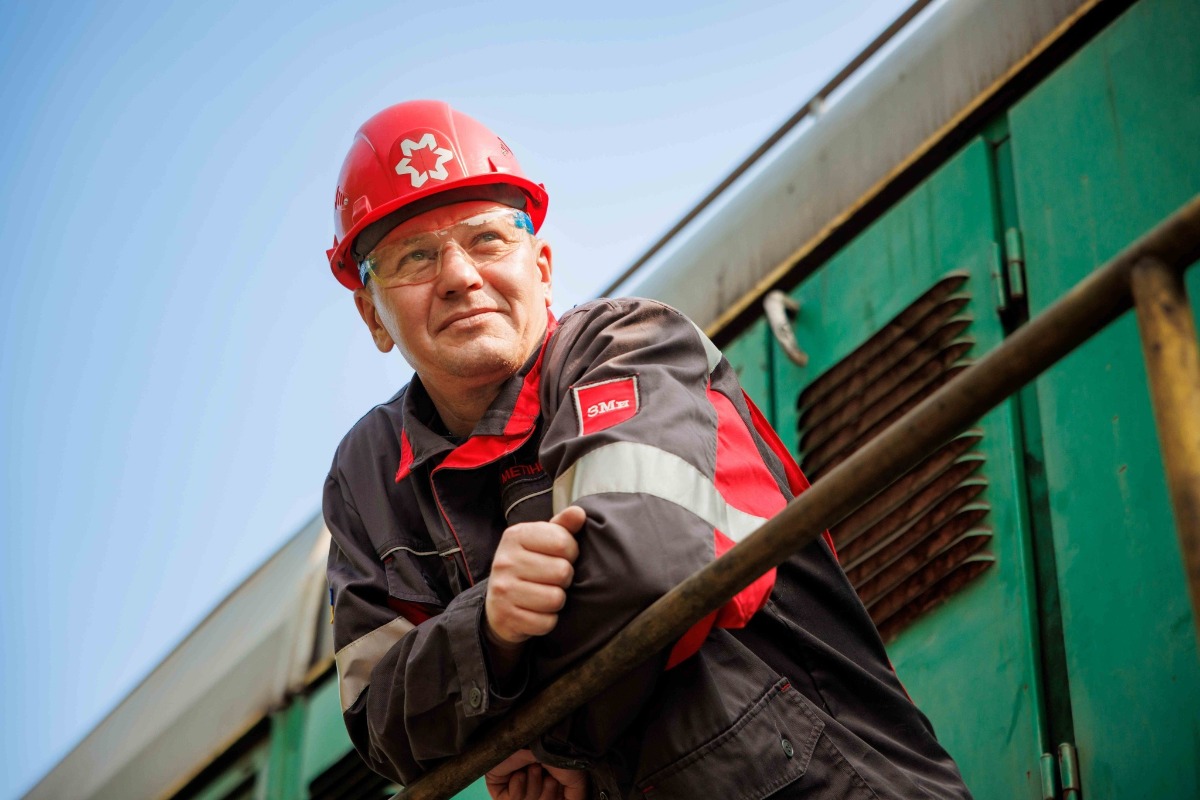
The war dramatically changed the life path of Serhiy Martynenko: the man began to think more about his prospects and, using the advice of a psychologist, focused after demobilization on himself and his own development.
"I am 51 years old – and I am now a student. I don't know if the war had an impact on it or something else. But at some point, I wanted something more. I wanted to develop myself as a specialist... Expand the boundaries of my worldview... When I came back from the war, I was offered a position of a specialist in railway equipment, because I have experience working on the railway. I want my work to bring a significant result, so that, without pathos, the shop and the plant will be beneficial. I am learning new things, I don't stop…"
Following the railway pay
In total, Serhiy has more than 15 years of experience on the railway. He joined the team of Northern Iron Ore in 2005, although at that time he already had known the railway of the enterprise well, because he worked in a contractor.
"Actually my first workplace is smoking shop. And then, when I met my soul mate, her father, my father-in-law, an experienced railway worker, invited me to work with him: his company "Shlyakhbud" back then just started their work at the plant. That was capital construction and repair of railways. I thought back then: well, I am going to work for a month on the railway and that's it. Because I didn't really like working with a shovel and driving spikes with a hammer. Hard work - rain or heat, and we are always in the open air. New people come all the time. There used to be women among us, and we always helped them... But over time, I got used to that. I remember confusing all open pit mines at first, because the supports are the same. Now I recognize them at first sight."
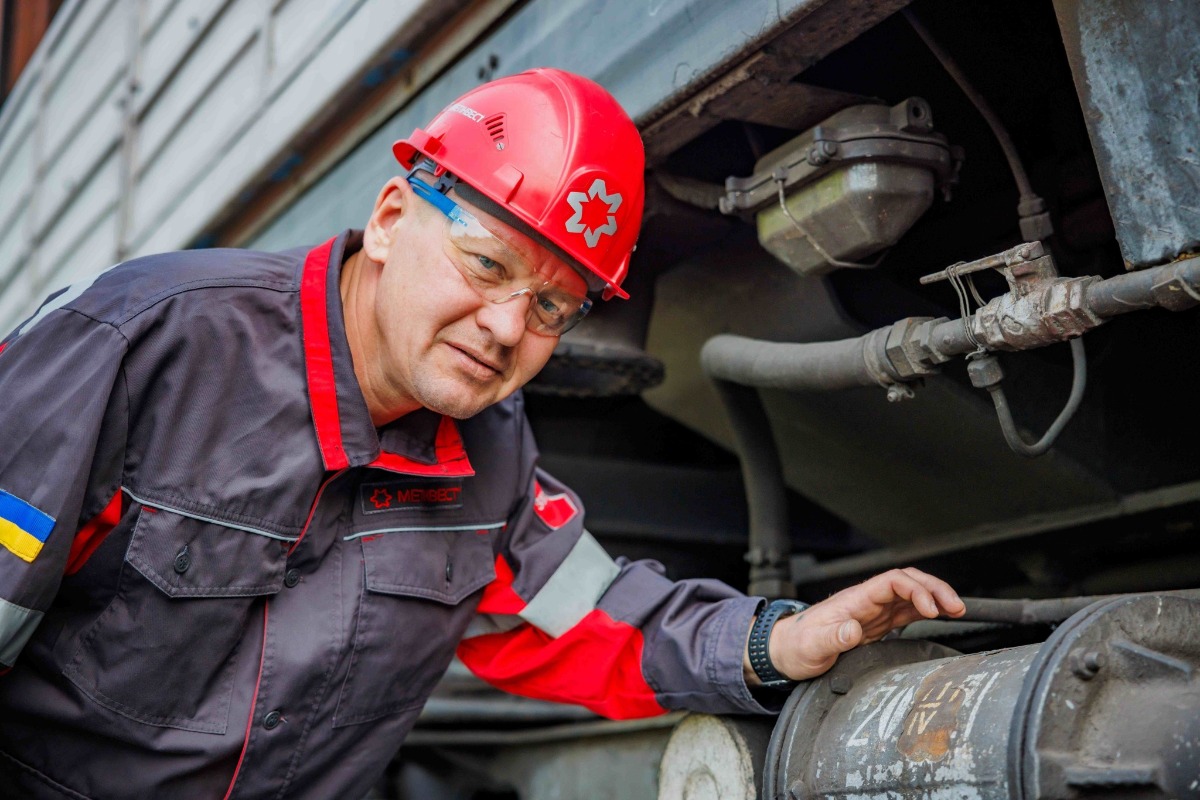
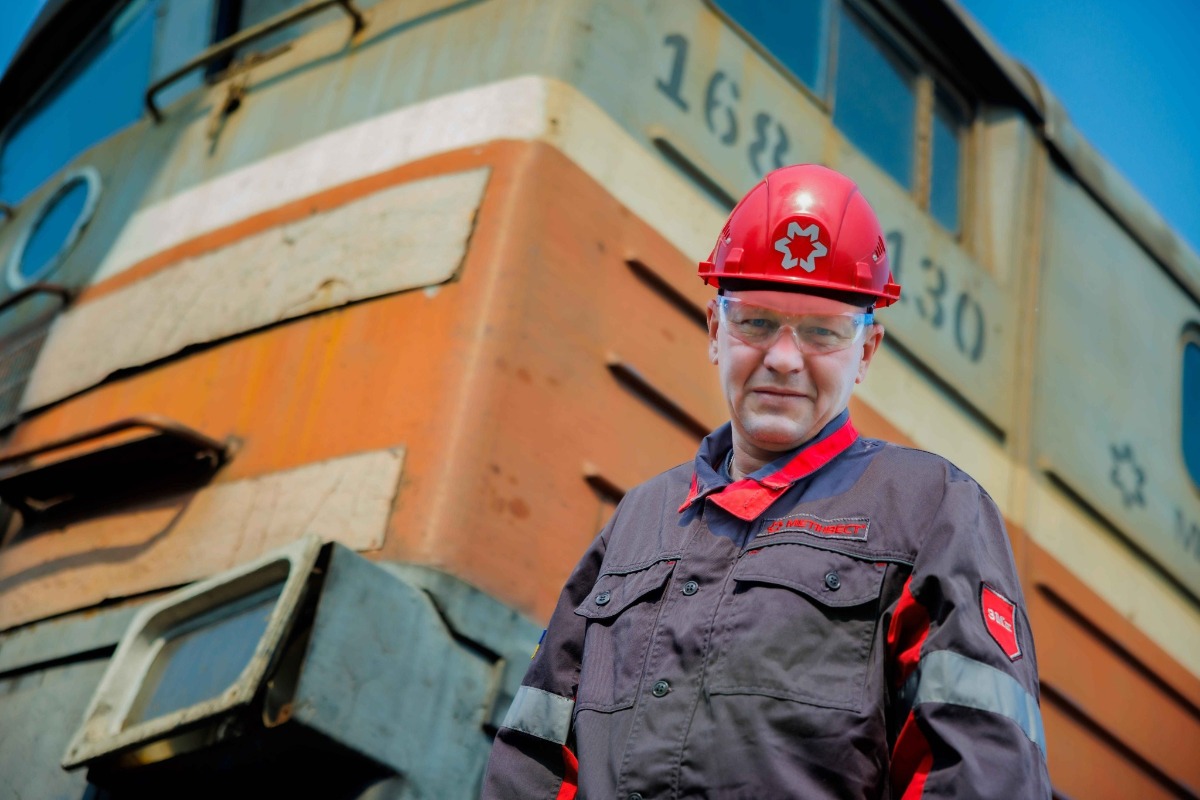
Subsequently, Serhiy Martynenko moved from contractors to the staff of the plant - after training, he was hired as an assistant traction unit driver at the RTD.
"I still remember the moment when I first put on Metinvest overalls. I always looked at it and I wanted to wear it, because it was nice looking. Because work in the company is already something stable, certain. In contractors, it's like today you are here, tomorrow you are completely at another place. When I came to ask about vacancies, I was worried that they would not hire me, because I was already 45 at that time. But the personnel officers took into account the work experience, in particular, in repairing tracks, removing emergency locomotive run-outs from rails. So soon I already worked as an assistant driver. I was involved in the removal of rock mass in the open pit mine and on dumps. That continued until a full-scale war broke out. Now the picture of life has changed again – I am back on the railway, but in a different capacity."
The difficult, physically exhausting work on the railway significantly helped the soldier during the defence of the country.
"It was easier to adapt, because working as a railroad worker trains endurance and resilience, patience and character in the best possible way. And today, that experience helps me grow professionally and fulfil myself. The war is also a good teacher. It taught me to look more closely at people. Now I can quickly organize minimal comfortable conditions anywhere. I definitely became more careful in communicating with people, but I do not behave condescendingly and do not consider myself better, because I served."
The hardest experience in the war
A year and a half of Serhiy's military service passed, and memories, he says, cannot be drowned out by anything. Those wounds are the deepest. And those are primarily not physical, but mental. They were received at the moments when death would walk nearby, and you can't stop it in any way. When those with whom he shared dinner as early as the day before die.
"The loss of sworn brothers is very difficult. Lately, I have tried not to even be close friends with anyone, so as not to attach. This is the most difficult experience that has a very strong effect on the psyche. I have many military pals and I will say that not everyone copes with this experience. Most of them just try to hide from it, abstract from it. But not everyone manages to retain one's humanity. There are cases when, unfortunately, they become aggressive and hating," the defender notes.
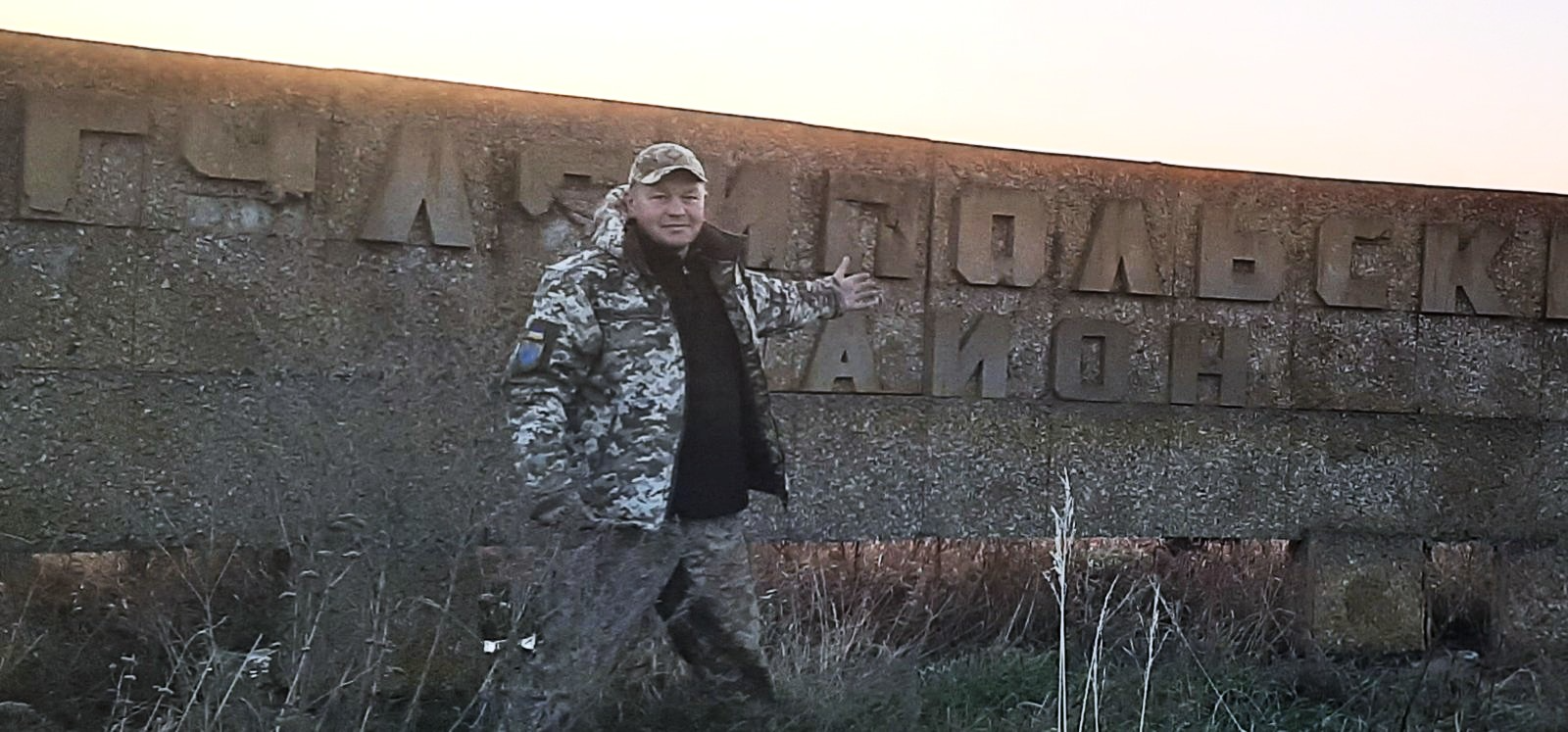
"You can't really discuss such things with anyone... Like with relatives? No. I never discuss anything from the military service with them. A long time ago, during regular military service, when mother and father called me, I repeated only one thing: I'm fine. It's the same in the war. My wife, daughter, mother-in-law, father-in-law – I told everyone the same: I'm fine. And what if during a conversation something bangs somewhere, then there is only one explanation: we are at the shooting range. And before dangerous military set-offs, I warned: We can't call today, because we, are going to buy firewood, products... Let them think that I am safe – it is easier for them and for me."
About meetings of sworn brothers and veteran triggers
Serhiy has repeatedly participated in meetings of Kryvyi Rih war veterans, in particular in the project "Speak Up, Veteran", implemented by Metinvest and the Kryvyi Rih Defense Council.
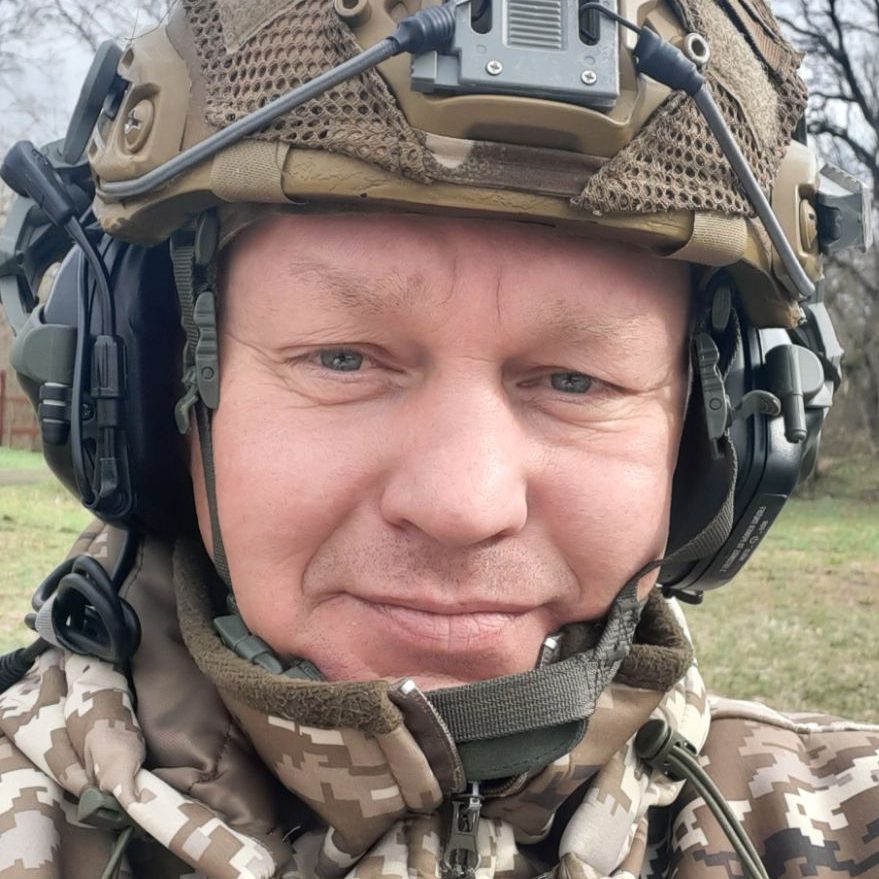
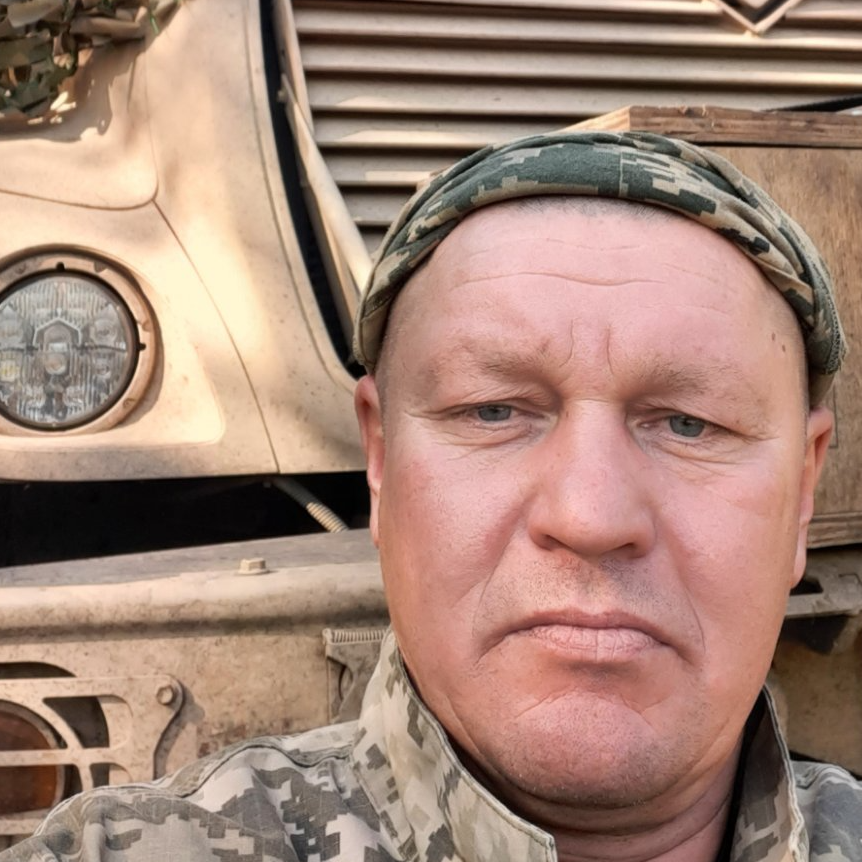
"Meetings with sworn brothers are like coming to your family. And if you see someone whom you know, with whom you fought in the same front or in the same unit, then it is especially pleasant... We really need such meetings: We come, chat, hug, everyone tells about his problems. For example, visits to dentists, benefits, rehabilitation... About employment and fulfilment. I know people who returned with severe contusions, with a disability group and could no longer work in their previous position, then they are offered, for example, an engineering position as an alternative. And it's great that the company is meeting halfway. And the bureaucracy is usually complained about by those who, as I say, are afraid to ask twice. When you need something, you should not be lazy and clarify it. There was no such thing with me that someone refused or offended me. Not once."
Meetings with sworn brothers are like coming to your family
"Unfortunately, there are veterans around who still feel something is wrong, despite the available support, they complain, they are not satisfied with everything. I don't know, maybe these are the consequences of the war that manifest themselves in this way and psychological therapy is needed. I myself went to a psychologist, and I recommend it. It really helps. For example, after my return, I had anxiety, nervousness, fears. A year and a half in the war after all. Relatives, time, work with a psychologist helped me... Although, of course, the war does not pass without a trace. You also need, frankly speaking, to work on yourself, to master irritability, anger. Sometimes I can still react sharply to some things. In cases where mobilization is brazenly evaded. When someone worries about exemption from duty permits, and at the frontline someone lays down their lives. It's hard to restrain myself when a pal from abroad calls and mentions in the conversation: "Your president came to us". I am irritated by this phrase "your president». They received education, professions, pensions in Ukraine, and there they say - "your president is coming». Such alienation sting the ears. Or when "couch experts" say that there is nothing good in the army. Of course, there are problems, and big ones, but this is the current situation. Now something is being collected at our own expense, donations... But this is the war. People should not forget about it."
A recipe for successful adaptation
Exists Serhiy emphasizes that it is extremely important for every veteran to feel needed, involved, and useful upon returning. And in addition to the family, the shop team can help in this:
"The more you work among people, the less likely you are to get stuck in thoughts about the war. It's easier to switch. Work issues absorb – and where have those difficult memories and doubts gone?.. Everyone met me at work! My boss, heads of services, colleagues. And while I was at the war, they often called me, were interested, worried, waited... All this is highly motivating."
The main thing is not to withdraw into yourself and always remain human
"Hobbies also help. I love football: You watch a match - you are already distracted. New topics, new people, new emotions... The battalion commander once said to me: "Remember - no one owes you anything. We gave you a uniform, we gave you a machine gun, and after this you are by yourself." Well, it's about the same here. There are benefits, trip tickets are given, there are opportunities to improve your health. Use it! If you want, go to the pool, play football. If you want, run the distance, show a screenshot - and you will be allocated funds for branded sneakers for sports... There are plenty of opportunities around. The main thing is not to withdraw into yourself and always remain human. A man. Whether you are military or not, you have been at the frontline or not."
New challenges and rituals
Now the experienced railway worker and veteran is put in the shop to fill positions where there are not enough specialists. He manages important processes, people. He says that the experience gained in the army helps to quickly find a common language in new conditions:
"If I look at one's face, I will immediately understand who is in front of me, how to cooperate, how to motivate. I know many of my current subordinates personally: Previously, they worked in railroad repairs. The experience of war also helps, although sometimes you make mistakes. Sometimes you look at a person: That one is not a good bet, but six months pass and you see that he is already with a medal and fights with Katsaps. People are different, you need to look closely, but you definitely need to respect everyone."
The veteran considers responsibility and loyalty to be his strong qualities. And for this he gives eloquent confirmation:
"Yes, faithful, terribly! Both to my wife and to the country. And to my favourite team. I have been a fan of Dynamo Kyiv since I was six years old – and until now! I think many will note that I am responsible. I don't brag – I really try to do any job as best as possible. I always care about the result and it is important for me that what I do is done with high quality."
The war brought several new habits and rituals into the life of the defender. He began to do more housework at home, to make something with his own hands. In the morning, he is now woken up by a new friend – a displaced cat, taken out by volunteers from the shelling of Mykolaiv. And when Serhiy comes to work, for the work order, he greets everyone, and he also always hugs with those who fought in the war: "Everyone in uniform is my sworn brother. How could it be otherwise... Even if I meet a stranger somewhere on the street in uniform, I definitely wish him health and smile."
"I have now been demobilized for family reasons, but if necessary, I will go again to the war with no doubt, I am ready. This is my duty as a man, citizen, father... I will not stand aside. When your sworn brothers are killed, you need to help. Much more important things are at stake. Life and freedom of the nation. These are not empty words for me."






